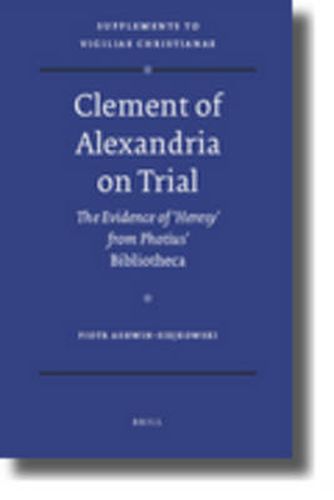Readings Newsletter
Become a Readings Member to make your shopping experience even easier.
Sign in or sign up for free!
You’re not far away from qualifying for FREE standard shipping within Australia
You’ve qualified for FREE standard shipping within Australia
The cart is loading…






Clement of Alexandria (c.150-215 CE) is one of the most significant theologians of the second-century, and his work is still the subject of intense academic debate. This book provides a new perspective on Clement’s thought, through a critical examination of the work of one of his critics, Photios (c.820-893 CE). Photios, the Patriarch of Constantinople, based his critique on Clement’s (now lost) treatise ‘Hypotyposeis’, claiming the work contained eight ‘heresies’. The book examines each ‘error’ listed in the 109th codex of Photios’ ‘Bibliotheca’ in depth, using evidence from Clement’s existing work to consider the likely accuracy of Photios’ critique. Focusing on these eight ‘heresies’ offers a unique opportunity to illuminate what in terms of post-Nicene orthodoxy are Clement’s most problematic opinions, setting them in the context of their original philosophical and theological frame.
$9.00 standard shipping within Australia
FREE standard shipping within Australia for orders over $100.00
Express & International shipping calculated at checkout
Clement of Alexandria (c.150-215 CE) is one of the most significant theologians of the second-century, and his work is still the subject of intense academic debate. This book provides a new perspective on Clement’s thought, through a critical examination of the work of one of his critics, Photios (c.820-893 CE). Photios, the Patriarch of Constantinople, based his critique on Clement’s (now lost) treatise ‘Hypotyposeis’, claiming the work contained eight ‘heresies’. The book examines each ‘error’ listed in the 109th codex of Photios’ ‘Bibliotheca’ in depth, using evidence from Clement’s existing work to consider the likely accuracy of Photios’ critique. Focusing on these eight ‘heresies’ offers a unique opportunity to illuminate what in terms of post-Nicene orthodoxy are Clement’s most problematic opinions, setting them in the context of their original philosophical and theological frame.